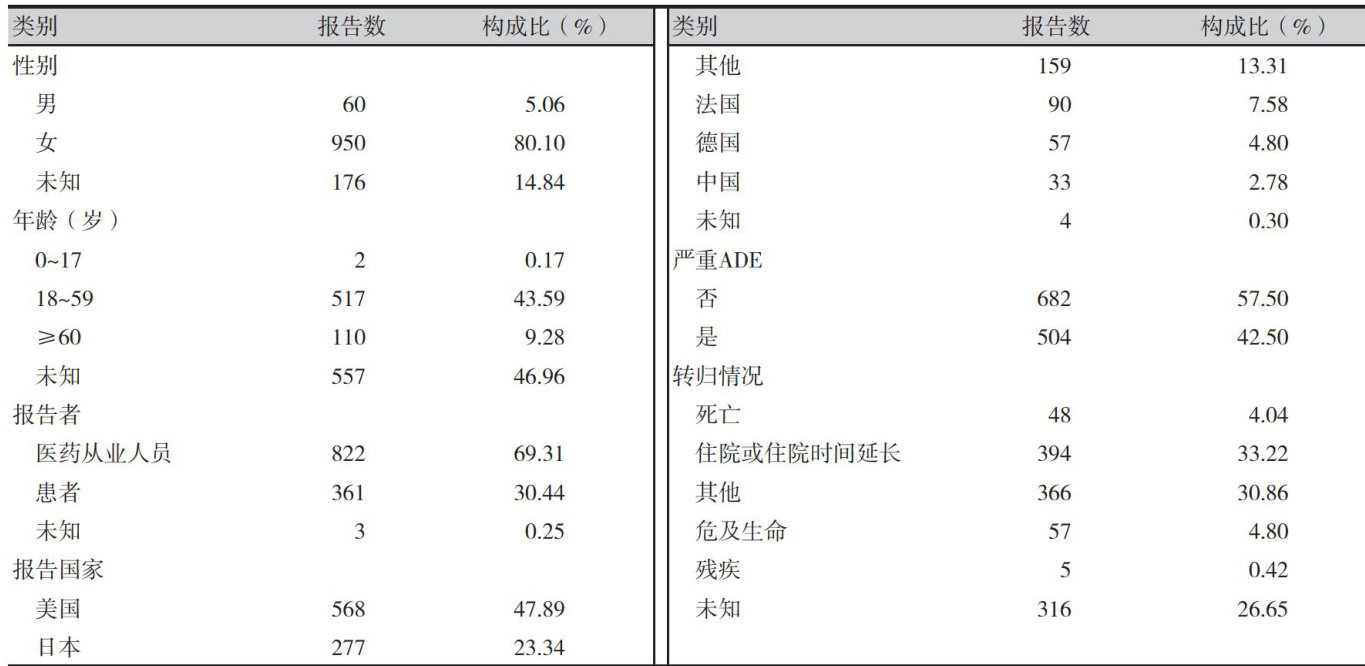基于FAERS数据库的阿尼鲁单抗不良事件信号挖掘与分析
·论著·一次研究·


打开文本图片集
【中图分类号】R979.5 【文献标识码】A
【Abstract】 Objective To explore the adverse drug event (ADE) signals of anifrolumab, and to provide references for clinical safe medication. Methods The ADE reports related to anifrolumab from the third quarter of 2021 to the third quarter of 2024 in the U.S.Food and Drug Administration (FDA) Adverse Event Reporting System (FAERS) were collcted. The report odds ratio (ROR) method,the comprehensive standard method of the U.K. Medicines and Healthcare Products Regulatory Agency (MHRA), and the Bayesian Confidence Interval Progressive Neural Network (BCPNN) method were employed to identify ADE signals related to anifrolumab.Systemorgan class (SOC) and preferred term in the Medical Dictionary for Regulatory Activities were used for data clasification and statistics. Results A total of 1,186 ADE reports with anifrolumab as the primary suspected drug were collected,and 49 signals were identified, involving 14 SOCs. The top 3 SOCs in terms of report frequency ranking were general disorders and administration site reactions,infections and infestations,and nervous system disorders.The top 3 ADEs in terms of report frequency ranking were headache, joint pain,and herpes Zoster. Vasculitis,pericarditis,proteinuria,and blood pressure abnormalities were suspected ADEs not documented in the specification and were also ADE signals with a high signal strength ranking. Conclusion The common ADE signals of anifrolumab are consistent with its drug instructions. However, when using anifrolumab in clinical practice,it is also necessary to be vigilant against the increase of various infectious diseases such as herpes zoster and new ADEs not included in the instructions such as pericarditis, to ensure the safety of patients'medication.
【Keywords】Anifrolumab; Adverse drug events; Signal mining; Ratio imbalance method Pharmacovigilance
系统性红斑狼疮(systemic lupus erythematosus,SLE)是一种累及多系统的慢性自身免疫性疾病,全球患病率呈上升趋势,我国患者超百万,近半数合并狼疮肾炎[2-3]。(剩余10691字)